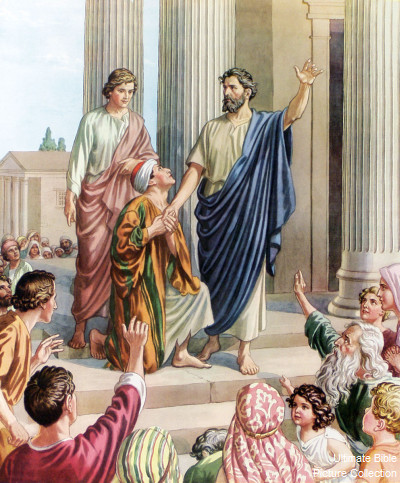In Jeremiah 17:20-22, that prophet was given a message particularly for the royal family of Judah: "Hear the word of the Lord, you kings of Judah, and all Judah, and all the inhabitants of Jerusalem, who enter by these gates. Thus says the Lord: Take care for the sake of your lives, and do not bear a burden on the Sabbath day or bring it in by the gates of Jerusalem. And do not carry a burden out of your houses on the Sabbath or do any work, but keep the Sabbath day holy, as I commanded your fathers." I want particularly to point to Jeremiah's audience here, the royalty. Through him, God is making an argument from the greater to the lesser, or in Latin, argumentum a fortiori. That is, if even the royalty are under obligation from God to honor His Sabbath Day, then everyone else must logically also be under that obligation.
Then Jeremiah turns from who is obligated to that to which they are obligated, the rewards for obedience, and the curse for disobedience, a standard form of covenantal stipulations (Jeremiah 17:24-27): "If you listen to Me, declares the Lord, and bring in no burden by the gates of this city on the Sabbath day, but keep the Sabbath day holy and do no work on it, then there shall enter by the gates of this city kings and princes who sit on the throne of David, riding in chariots and on horses, they and their officials, the men of Judah and the inhabitants of Jerusalem. This city shall be inhabited forever, and people shall come from the cities of Judah and the places around Jerusalem, from the land of Benjamin, from the Shephelah, from the hill country, and from the Negeb, bringing burnt offerings and sacrifices, grain offerings and frankincense, and bringing thank offerings to the house of the Lord. But, if you do not listen to Me, to keep the Sabbath day holy, and not to bear a burden and enter by the gates of Jerusalem on the Sabbath day, then I will kindle a fire in its gates, and it shall devour the palaces of Jerusalem and shall not be quenched." Prosperity and safety are promised for obedience, while destruction is promised for disobedience. And, indeed, Judah was destroyed by the Babylonians in 586BC, so we already know the final result.
To use the language of teenagers, Jeremiah shows us that God don't play! Remember when Jesus called Himself the Lord of the Sabbath (Matthew 12:8)? People treat that as as a statement to the intent of, "Don't work about it." But no, it is just the opposite! As Jehovah incarnate, Christ is literally the Lord of the Sabbath. "Lord' is used in the Greek translation of the Old Testament where "Jehovah" appears in the Hebrew. Jesus is exactly the same Lord who is speaking in this prophecy of Jeremiah. Far from saying that it is unimportant, by declaring Himself Lord of the Sabbath, Jesus was telling His disciples that it was very important to Him!









